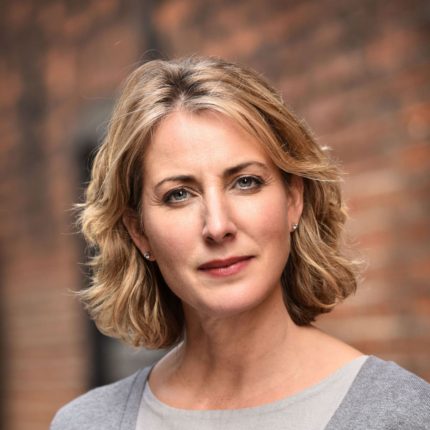During the recent Wonkfest, we were asked to take part in a panel related to digital issues faced by universities, and how institutions might support students who might be subject to online abuse.
The panel was very well attended with plenty of questions from the audience, and one question in particular seemed extremely timely. The person raising the question said that their own institution was concerned about the growing popularity of a social media page claiming association with them, where the vast majority of posts were of a sexual nature or related to excessive drinking or drug taking. But they felt powerless to do anything about it, given that posts were anonymous, and they were not sure who administered the page.
I have a secret
“Confessions” pages are generally created on one of the main social media platforms (Instagram, Facebook or Twitter) and allow students to post up “anonymous confessions” related to their life at university. In general, they are run by an administrator (or team of administrators) who will be privately sent a “confession” and will then decide whether or not to post onto the page. Once posted, members of that page see the “confession” and are free to comment upon it.
These anonymous pages have existed for quite a while. Not so long ago there was a spate of “Spotted at…” Facebook pages where students would post things they claimed to have observed on campus, and many were taken down as a result of abuse – for example when people were singled out for harassment or objectification. For a time an entire geo-local social network of its own called “Yik Yak” had a model focused on confessions rather than observations, and the more recent incarnation are generally on Facebook and can go by a number of names – like, “confessions”, “fess”, “honestly” or “truths”.
The timeliness of the question became apparent when a couple of days after the event the student press ran a story related to hate speech on a Facebook “confessions” page associated with Exeter University – ExeHonestly.
The story went on to be picked up by a number of national newspapers and again raised questions regarding the responsibilities of universities, the limitations on freedom of speech online, and how online discourse is regulated. In this case some posts had been of a type that clearly moved into illegal territory referring to far right, racist, tropes.
The university (quite correctly in our view) reported the page to Facebook and also reported the posts to police as hate crimes. Those who administered the page felt this was excessive, and were quoted in the article saying:
“As a team, we do not believe ourselves to be responsible of any crime, as hate crime requires genuine intent to stir hatred, and we were regretfully ignorant of the posts meaning and took action as soon as we became aware of it.”
The administrators ultimately took the page down, claiming mental health concerns as a result of abuse they had received since the story had broken. Now a similar page called “Exefess” has now arisen from its ashes, although it would seem the administrators for that site are making use of a national “confessions page” moderation service called “UniTruths”, which as well as having international clients also supports pages for universities in Lincoln, Hull, Newcastle, Surrey, Bathm Leeds, Cambridge, UWE, Edinburgh and Bristol, where the founders were students.
Hedonistic tales
A brief exploration of a few of these pages would suggest that the majority of posts on these sites relate to excessive drinking, drug taking or sexual activity. The following is a small sample collected over a short period of time by way of illustration:
“A girl I met on a night out came back to my flat and shat up against the toilet wall she was that drunk.
“Last weekend in , after dancing with a girl for 30 minutes, it turned out she was a swinger. She asked me to be the third part of her relationship as the guy wasn’t “fulfilling” her needs’. I said no but added on snapchat.
“I was watching some porn a few months back, and by random chance stumbled upon one of my classmates being spitroasted. She’s normally quite sweet so it was a surprise reveal. They don’t know I know.
While posts are unverifiable, they hardly paint student behaviour in a good light. There is nothing illegal about this sort of comment, but there is clearly reputational risk to the institutions. One “confessions” site, now removed, had over 5,000 followers and many hundred posts that would have placed that particular university is a very bad light if viewed by a prospective student or parent of an applicant.
Do no harm
What is potentially more harmful are posts that mention university facilities or staff:
“Absolutely sick to death of the toilets. Why do they always smell like someone pissed into a water gun and sprayed it over the walls?
“One of the lecturers messaged me on a sugar daddy dating site. He basically wanted sex from me and was like “we can use one of the bathrooms”. He was super creepy and should definitely be kicked out.
And while it would seem, possibly as a result of the use of moderation services, there is now little obvious bigotry or hate speech, there are others that might be viewed as predatory and misogynistic:
“To the princess from , your angelic eyes are beautiful and I’m in love with them. See you in October.
“Worked ticket collection for freshers event and repeatedly traded number with girls for special treatment (no free entry, sorry). Bit shallow but it worked so well.
So, to return to the original questioner’s comment – that their institution could not do anything about these pages, is this really the case?
What can universities do?
What is clear from the Exeter case was that there was a way to contact the administrators of the page, and it would seem from the reporting that this is something the institution had done in the past. It would be churlish to suggest that an institution should stamp on all posts – a lot of which differ little from typical low brow social media discourse. But posts that unfairly criticise institutional facilities or staff are certainly unacceptable and should be tackled in the first instance by contacting the page administrators.
We should also bear in mind that while posts are anonymous, and generally well moderated by people who clearly seem to have an appreciation of the right side of legal free speech, responses to the posts are not and students can be identified in them. While a lot of comments might not be illegal, it is perfectly within an institution’s gift to set thresholds for social media comment related to the university to be lower than illegal. Within student codes of conduct, an institution is well within its rights to point out that bringing the university into disrepute or unfairly criticising facilities or staff may result in disciplinary action.
Finally, social media companies now take copyright infringement and trademark abuse very seriously, as they might ultimately be held liable for litigious content posted on their sites. If, for example, a page made use of a university logo or made specific reference to an institution in the page name, there is space to argue this constitutes a trademark infringement (in passing off the page as institutionally aligned) or copyright abuse (if the logo was used without permission). Most social media platforms have trademark and copyright abuse pages with which this can be reported, and we have seen instances of this resulting in the successful take down of pages. Pages may re-emerge under different names, but there is at least some capacity to act using these mechanism and distance institutions from those claiming affiliation.
Free speech
Many universities would shy away from the above approaches, and many students (and SUs in some contexts) would defend the right of students to engage in these pages as long as they are not harming others. But even if a fairly laissez-faire approach to content is adopted, universities have another role to play here.
We would suggest that these current debates highlight the role of and need for critical digital literacy. The administrators of ExeHonestly, for example, argued that “hate crime requires genuine intent to stir hatred”. But this is not the case – there only needs to be a motivation for hostility, as defined by the Crown Prosecution Service as:
“a range of criminal behaviour where the perpetrator is motivated by hostility or demonstrates hostility towards the victim’s disability, race, religion, sexual orientation or transgender identity…
“a hate crime can include verbal abuse, intimidation, threats, harassment, assault and bullying, as well as damage to property…
Public posts on social media that are threatening, backed up with follow up comments, could certainly be considered to be intimidating and threatening, and could result in criminal prosecution.
Moreover, students need to be aware of the reach of posts they make, and that anonymity is not always as anonymous as they assume. While the posts might appear anonymously the submission to the administrators would not have been. If there is evidence of criminality (for example, a hate crime) they have some responsibility to disclose who shared to comment in the first place and may be subject to pressure from law enforcement to do so (particularly, as we expect to see, social media platforms are regulated to become more responsible for the content on their pages). And of course, the non-anonymous responses to these anonymous posts, many of which appear on public pages, may also come back to haunt them and they need to be made aware of this.
I can’t programme the video recorder
If universities are serious about student conduct, all of this means that institutions need to develop a greater institutional knowledge regarding the digital world. “We can’t do anything” is not the case, but one does require a certain level of knowledge to be able to tackle these issues. Awareness would be a start. We wonder how many of those in senior management positions in universities are aware of the existence of these pages, let alone the high publicity reputational damage that can result from a national news story about one of them – or a failure to support victims who might feel unsafe or threatened as a result of what is posted?
“It’s online, what can we do?” is no longer a reasonable response to digital misconduct. Universities need trained staff who are aware of how to respond to these issues. They need to work with external bodies who are expert and can provide support, insight and practical help for victims. And they need to consider how rules around conduct between students in the online world are communicated to students. A good place to start might be to speak to the student body themselves – we know from many years working in the schools sector that one learns a great deal by listening to the very people living these digital experiences, rather than deciding that we, as older adults, know best.













